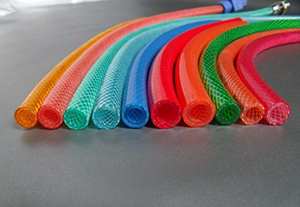You have no items in your shopping cart.
What is Polyurethane?

Whether you live in a low-key rural town or busy urban community, chances are you’ve encountered hundreds of polyurethane products in your lifetime. In fact, you probably own several items that contain polyurethane right now. That’s because polyurethane is one of the most diverse forms of synthetic resin available on the market, and it’s used in thousands of household and commercial products world-wide.
What is Polyurethane made of?
Scientifically speaking, polyurethane is made of two main chemical components: polymers and urethane. During the chemical process, polymers are linked together by urethane groups, creating a versatile solution that can take many forms. This polymer compound creates a stable, safe and durable product that millions of individuals use every single day.
Unlike other potential synthetic compounds, polyurethanes are heat resistant, and will not melt while heated. This heat resistance makes them the perfect solution to elements that can emit large amounts of energy (like a car or refrigerator) without worrying about melting or overheating. While most polyurethane brands are heat resistant, there are a select few compounds available (thermoplastic polyurethanes) which can melt under applied heat.
Is Polyurethane Safe for my Family and the Environment?
In an environmentally conscious world, it’s important to feel confident that our purchases are keeping the environment and our families safe. Polyurethanes work to reduce overall energy consumption in electronics, and reduce noise and heat with vehicles. What’s more, when used as a finished product, polyurethanes are safe to use within your home.
As with any chemical, if you are using these products in their varnish, liquid or foam state, do not ingest. They are considered toxic and should be treated as such until they are cured, finished and ready for use.
What Can I Use Polyurethane For?
Due to the synthetic nature, it can be formulated in many different ways, depending on the needed application. Some of the more popular uses include topical applications like, varnishes, paints, sealants, adhesives and foams.
As Polyurethane is a plastic material, the chemical compound can be manipulated to create various states of velocity. It can be a flexible, pliable product as with a sealant; it can be a rigid, durable product as with car parts; or it can be a liquid finishing product as with varnish.
Is Liquid Polyurethane Easy to Use?
A polyurethane finish is essentially a liquid plastic, forming a nice finish on wood, acrylic or latex surfaces. It is available in both water-based and oil-based formulas, depending on what you need the finished surface for.
The water-based option offers an easier application for lighter finishes, drying faster than its oil counterpart. The water-based polyurethane also offers a lower odour and toxicity, but tends to give under heat or chemical use. The oil-based formula works better for applications where heat might be used (a kitchen table) but will require a longer drying time and proper ventilation will be required for the fumes. Oil-based products can also leave a slight yellow hue when dry.


